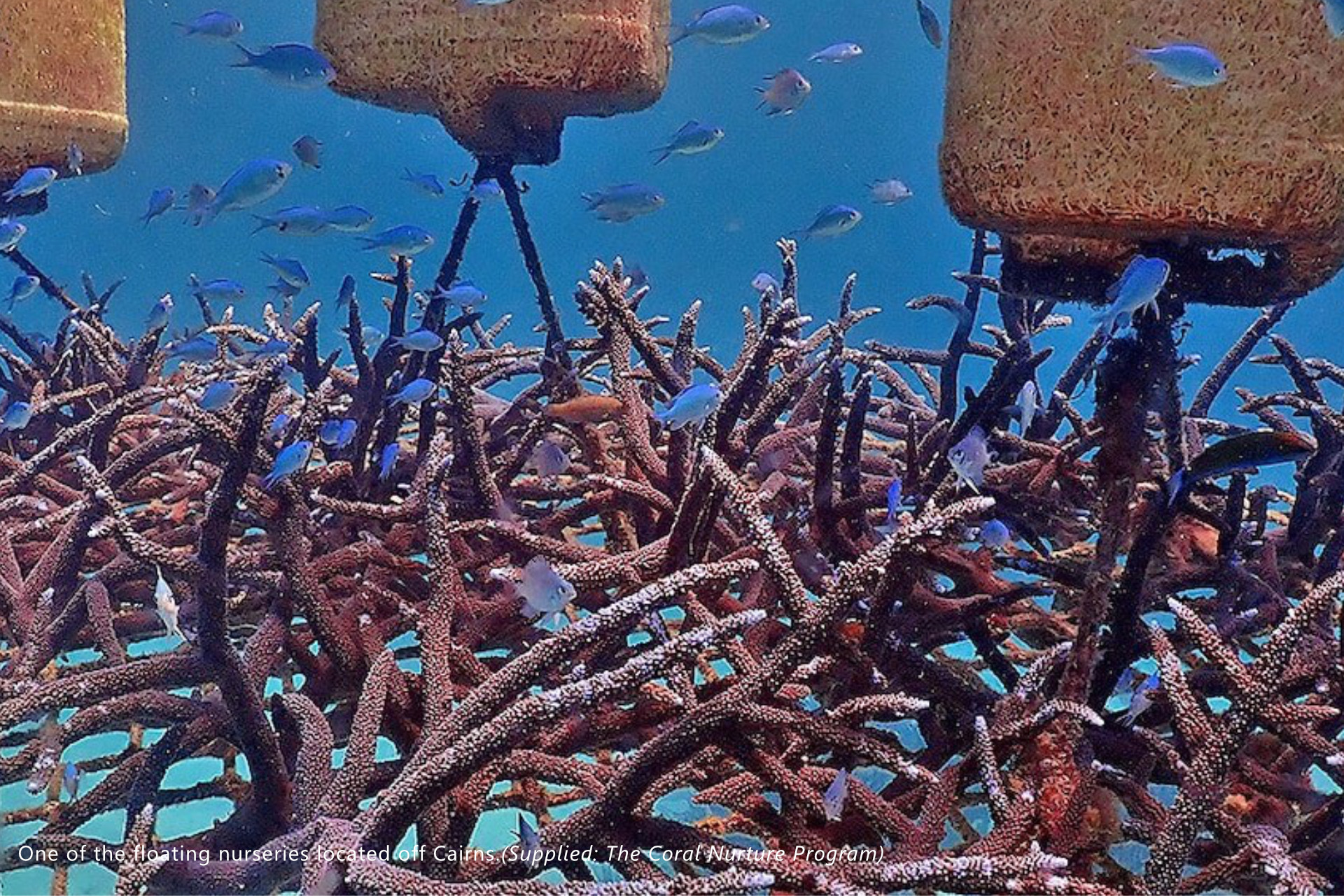Great Barrier Reef 'coral nurseries' show early signs of success

Protecting and restoring our reefs has never been more important than now. Reefs around the world have been experiencing ‘bleaching’ phenomenon due to ocean warming, acidification and extreme weather. Corals have algae-like zooxanthellae that live in their tissue, which gives the coral its color. Coral bleaching is a stress response when the zooxanthellae are expelled from the tissue and it becomes transparent, exposing their white skeleton. Due to this ongoing phenomenon, the United Nations has recommended that the Great Barrier Reef be added to the World Heritage “in danger” list.
Luckily scientists and environmentalists have jumped into action to find ways to reduce our carbon footprint as well as restore reefs around the world. Dr. Emma Camp at The University of Technology Sydney in Australia is the co-founder of The Coral Nurture Program. This program is collecting broken or near dead pieces of coral and rehabilitating them in nurseries. The pieces are attached to aluminum floating frames referred to as trees where the pieces are hanging off it. Hanging the coral protects them from parasites, predators and competitors while allowing them access to sunlight for photosynthesis, which accelerates the process of recovery. Once fully healed these corals are then “replanted” on rocks and reefs within the Great Barrier Reef. Since 2018 the program has planted more than 76,000 pieces of coral on different sites between Cairns and The Whitsundays.
It is truly amazing to see so many dedicated to restoring our reefs and oceans. With advances in science and organizations dedicated to sustaining our oceans we can begin to make a difference. To learn more about this program please go to ABC Far North Great Barrier Reef 'coral nurseries' show early signs of success - ABC News
Featured photo: One of the floating nurseries located off Cairns.(Supplied: The Coral Nurture Program)